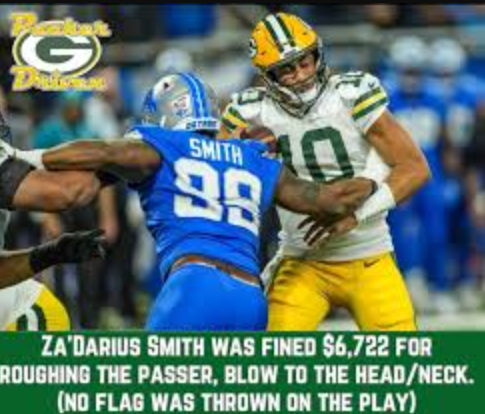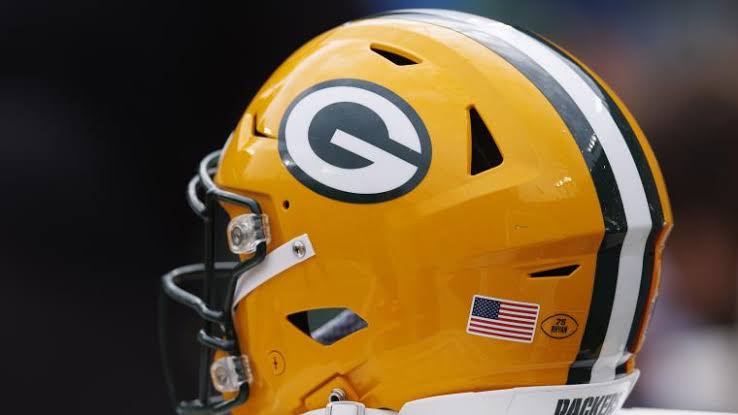
For his hit on Jordan Love, former Packer Za’Darius Smith was fined…
Former Green Bay Packers pass-rusher Za’Darius Smith left last week’s Detroit Lions victory over the Packers a little lighter in the wallet. The NFL announced on Sunday that Smith was fined nearly $7,000 for a hit to the head on Packers quarterback Jordan Love, a play flagged by the officiating crew.
If you asked Smith, he’d probably tell you he’d gladly trade $7,000 for a missed 15-yard penalty and an automatic first down. Unfortunately for the Packers, the fine does nothing for them now, serving only as a retroactive punishment for Smith — and not a remedy for the team impacted by the hit. You can watch the play in question below.
Lions guard Christian Mahogany was also fined in the same game, slapped with a $4,609 penalty for grabbing the facemask of Packers linebacker Quay Walker. The penalty was called during the game, making it another hit to the Lions, both on the field and financially.
The NFL’s growing trend of fines raises eyebrows. Instead of focusing on getting calls right in real time, the league seems content to reach into players’ pockets after the fact. This approach leaves teams without recourse for missed or inconsistent penalties during games and instead shifts the focus to punishing individual players.
The numbers back up the trend. In 2016, the league set a record with 238 fines in a single season. But since 2023, the pace has exploded. By Week 11 of the 2024 season, the NFL had already issued 283 fines with six regular-season weeks still to play.
What makes this even more frustrating is the subjective nature of these fines. Just last month, Chiefs quarterback Patrick Mahomes was fined $14,069 for making what the league called a “violent gesture.” The gesture? Pointing in a way the NFL interpreted as “finger guns.” That’s more than double the penalty Smith received for a helmet-to-helmet hit.
It’s worth noting that these fines go toward the Professional Athletes Foundation, which helps fund youth football programs. While that’s a worthy cause, it’s primarily defensive players who receive the lion’s share of fines footing the bill. The approach raises questions about fairness, consistency, and whether the league is doing enough to ensure officiating gets better rather than just relying on postgame punishment.








